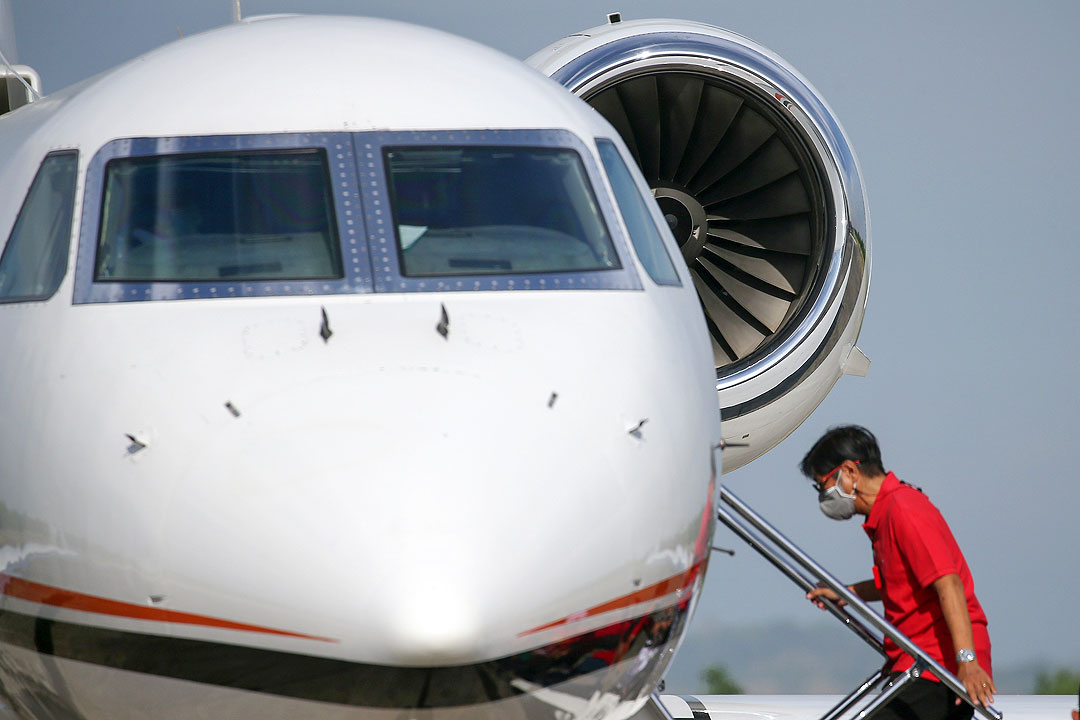
Thinking Beyond Politics
By Renato Cruz De Castro

In the recently concluded 2022 elections, almost every one of the presidential candidates criticized President Rodrigo Duterte’s appeasement policy towards China. They said that, if elected, they will challenge China’s aggressive actions in the disputed waters and enforce the July 12, 2016 arbitral tribunal ruling.
For these candidates, China is the core concern of Philippine foreign policy in the light of tense maritime and territorial disputes in the West Philippine Sea.
However, there was only one presidential candidate who expressed positive comments toward China.
This lone candidate voiced out President Duterte’s mantra that there is no point in challenging Chinese expansion in the South China Sea since the Philippines will likely lose any war against China. The 2016 arbitral ruling, he claimed, was not effective because China did not recognize it. Instead, he declared that he would seek a bilateral deal with China to resolve the territorial dispute in the South China Sea. He also questioned the necessity of modernizing the Armed Forces of the Philippines (AFP) since he favored engagement rather than armed conflict with China.
In a TV debate, he modified his accommodating posture when he declared that he wants Philippine military presence in the disputed territories to show China that we are defending what we consider as our territorial waters. He also said that he will deploy Philippine Navy (PN) ships to protect Filipino fishermen, who have been fishing in the area for over a hundred years.
Nevertheless, he was considered as the most China-friendly candidate who everyone assumes will continue President Duterte’s appeasement policy and might even bring Manila closer to Beijing. He is, of course, the presumptive president, Mr. Ferdinand Marcos, Jr.
UNDERSTANDING THE NUANCE
In late 2016, President Duterte sought the improvement of relations with China to increase economic cooperation. However, this required softening the country’s confrontational stance on the South China Sea dispute. He calculated that the Philippines’ hardline posture against China had strained the two countries’ economic relations. Thus, he faced the challenge of earning China’s goodwill and cooperation.
China’s appeasement meant shelving the sovereignty issue, managing the conflict in bilateral forums, and focusing on other issues that allow bilateral engagements, such as joint development, strengthening of bilateral trade, and Chinese support for Philippine economic development.
Three years later, however, the Duterte Administration pursued a policy of limited hard balancing toward China. It resorted to this diplomatic strategy by continuing some of the late President Aquino’s policies such as: a.) building up the AFP’s territorial defense capabilities; b.) maintaining its alliance with the US, and, c.) fostering a security partnership with Japan. On July 12, 2020, the Department of Foreign Affairs (DFA) issued a statement on the fourth anniversary of the arbitral award on the South China Sea dispute.
Foreign Affairs Secretary Teodoro Locsin declared that the arbitration case, initiated and won by the Philippines versus China, is a contribution “of great significance and consequence to the peaceful settlement of disputes in the South China Sea and to the peace and stability of the region at large.”
This was the first time that the Duterte Administration publicly called on China to comply with the 2016 arbitral tribunal awards that invalidated its expansive maritime claims over the resource-rich and strategically located South China Sea.
FOLLOWING HIS PREDECESSOR’S FOOTSTEPS?
In my special paper published in the recently launched book of top think tank Stratbase ADR Institute titled, Beyond the Crisis: A Strategic Agenda for the Next President, I discussed how Duterte’s appeasement policy extended two key diplomatic concessions to China — down-grading the Philippine-US alliance and putting aside the July 12, 2016 arbitral ruling. The presumptive president needs to understand the nuances of this damaging policy and adopt a rectifying approach in foreign affairs.
President Duterte did not, however, align or much more, subordinate Philippine foreign policy to China’s revisionist goal of maritime expansion. He realized that appeasing China is actually risky as this requires Manila to place its trust on a stronger Beijing. He also took into account that the Philippines is not a weak and isolated Southeast Asian state that could not challenge China.
The Philippines is a formal treaty ally of the US and it maintains security partnerships with other industrialized and militarily more powerful middle powers like Japan, Australia, and South Korea. It should be remembered, that in response to China’s efforts to enhance its de facto control over the South China Sea, the Duterte Administration even asked the US to clarify the scope of application of its defense obligation under the 1951 Mutual Defense Treaty (MDT).
Public sentiment against the administration’s appeasement policy also forced the government from gravitating closer toward China. It adopted a two-pronged policy towards China by actively promoting bilateral economic cooperation with China and seeking for a peaceful resolution to the South China Sea dispute, and at the same time, pursuing efforts aimed to counter Chinese maritime expansion by effectively applying the rule of law in the international framework.
Professor Victor Andres “Dindo” Manhit, president of the Stratbase ADR Institute in his statement during the launch of Stratbase ADRi’s strategic policy book, stresses the strategic importance of defending Philippine territorial jurisdiction in the West Philippine Sea. This is a valuable collection of 16 policy papers from well-respected policy thinkers that ventilates recommendations for the next administration on the most urgent issues on foreign policy and security, economy, social inequality, food security, climate change, and governance.
The new administration is fortunate to have strategic thought leaders offering their expert advice to move this country forward.
Dr. Renato De Castro is a Trustee and Convenor of the National Security and East Asian Affairs Program of the Stratbase ADR Institute.